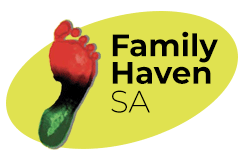TRAINING & CONSULTANCY
My Baby’s Mind Resource
My Baby’s Mind Resource was developed by Zakiyyah after a successful grant application through the Australian Association for Infant Mental Health (AAIMH). It’s purpose and goals are to enhance the parent – infant relationship between CALD communities and health professionals.
Journeying alongside Bi Lingual, Bi Cultural Workers Zakiyyah was able to consult with the Pashtun, Syrian, Nepali, Spanish speaking and Burmese community. Where 6hrs of rich, open, in-depth conversations and education were able to take place and be filmed.
Topics also include – Domestic and Family Violence, impacts of COVID19, homelessness, transition from one country to another and what services they found helpful.
The resource has been further developed into a two day training course targeted at health professionals and those keen to learn and build relationships with new arrival communities.
“A Cultural Understanding of Pregnancy and Parenting Attachment in the First 1000 days.” is a two day training package which includes full access to these in-depth filmed consultations in relation to their experiences and understanding of infant mental health.

Available for download:
My Baby’s Mind – A Relaxation Colouring and Conversation Booklet
NCAST – Teaching Scales (3 day workshop) and Feeding Scales (3 day workshop)
- Valid and reliable assessments for measuring parent-child interaction with an extensive body of research across disciplines.
- Excellent pre and post measures to document intervention effects for clinicians and researchers.
- Scales which have been used in hundreds of studies and published in peer-reviewed scholarly journals
The NCAST Parent-Child Interaction (PCI) scales are designed for parents/caregivers and children age birth-3 years (36 months). The PCI scales consist of two measures – a Feeding Scale and a Teaching Scale. Both scales are assessment tools which provide valid and reliable measurements of parent-child interactions.

The NCAST tools measure caregiver-child interaction and there is substantial research demonstrating the important links between the quality of the caregiver-child interaction and a child’s subsequent intellectual, language and emotional development. The NCAST tools were developed in the US by Kathryn Barnard (Washington University, Seattle). Health professional undertake extensive training to use the tools to inform the assessment and subsequent intervention in their work with families
This workshop is designed for those professionals working with families with infants and young children and will benefit from understanding the advantages of using the scales in clinical practice.
Participants will learn how to use NCAST PCI scales as a tool to gather information in relation to the parent-child dyad; assessment of parent-child interactions; and intervening with parents and young children.
More details on PCI scales can be found here: Parent-Child Interaction (PCI) Feeding & Teaching Scales – Parent-Child Relationship Programs (pcrprograms.org)
